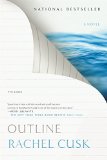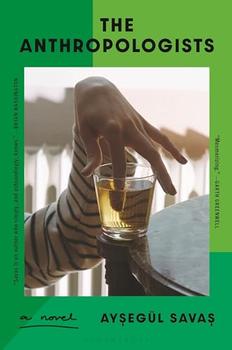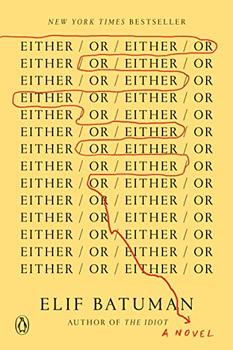Summary | Excerpt | Reviews | Beyond the book | Read-Alikes | Genres & Themes | Author Bio

A Novel
by Rachel CuskOne of the first things that strikes the reader of this, Rachel Cusk's eighth novel, is the unusual taciturnity of its narrator. An almost wordless storyteller is, on the face of it, a contradiction in terms, if not a complete impossibility. After all, how can a tale be told in virtual silence? It is, however, precisely this dichotomy that Cusk exploits to remarkable effect in Outline.
Rather than creating a conventional story-teller, she turns the concept of narration on its head, presenting us instead with a blank canvas, a woman of few words who, in exuding a quiet calm, attracts a host of diverse characters who are seduced by her innate stillness. Compelled to fill the silence that surrounds her, the people she encounters over the course of the book recount the story of their own lives. One of the most poignant is that of a Greek businessman who, despite his wealth, has failed to find fulfilment with a string of wives, and who now spends his declining years forever regretting the failure of his marriage to his first — and truest — love. Through this and other individual portraits of love and loss, of happiness and sadness, of disappointment and regret, we are presented with a profound meditation on life and what it means to be human.
About the narrator herself, we are given scant information. That she remains nameless for most of the novel only adds to her mystique and the essential unknowability of her character. In fact, when we are suddenly, and quite jarringly, presented with her name in the penultimate chapter, it feels like an invasion of a sacred space, as if the reader is trespassing on private property. The particulars can be summed up in a few words - the narrator is a writer who has travelled to Greece to teach a short creative writing course, briefly leaving behind in England, two sons and the wreckage of a failed marriage. Indeed, much of the void within and around her has been created by the disintegration of this marriage; it has opened a great empty chasm which she tries to fill by gaining an understanding, through the people who talk to her, of the 'hows' and 'whys' of human nature. In this way, she gains from the confessions of others just as they benefit from the unburdening act of confessing. "...While he talked," we are told towards the end of the book, "she began to see herself as a shape, an outline, with all the detail filled in around it while the shape itself remained blank. Yet this shape, even while its content remains unknown, gave her…a sense of who she was." Whatever discoveries the narrator makes about her sense of self are never disclosed; she remains a mystery, a faded-to-gray outline.
This expertly conveyed incompleteness can at times be unsatisfying, especially for readers who prefer a conventionally structured story with a defined beginning, middle and end. Ultimately however, this unfinished quality is a perfect metaphor for life in all its messy, constantly evolving glory.
Outline bears all the hallmarks of Rachel Cusk at her best. The finely crafted prose reveals a virtuosity in her command of language which is rendered with an admirable lightness of touch. The nature of life, love, and loss are recurring themes throughout her work and in Outline they are as insightfully explored as ever. This is a fiercely intelligent, emotionally intuitive novel. While at times its sheer profundity can be overwhelming, if not a little intimidating, this book has something to offer anyone who has discovered, like the narrator and her interlocutors, that "there is no such thing as life without pain."
![]() This review was originally published in The BookBrowse Review in February 2015, and has been updated for the
January 2016 edition.
Click here to go to this issue.
This review was originally published in The BookBrowse Review in February 2015, and has been updated for the
January 2016 edition.
Click here to go to this issue.

If you liked Outline, try these:

by Aysegül Savas
Published 2024
Asya and Manu are looking at apartments, envisioning their future in a foreign city. What should their life here look like? What rituals will structure their days? Whom can they consider family?

by Elif Batuman
Published 2023
From the acclaimed and bestselling author of The Idiot, the continuation of beloved protagonist Selin's quest for self-knowledge, as she travels abroad and tests the limits of her newfound adulthood.
Not doing more than the average is what keeps the average down.
Click Here to find out who said this, as well as discovering other famous literary quotes!
Your guide toexceptional books
BookBrowse seeks out and recommends the best in contemporary fiction and nonfiction—books that not only engage and entertain but also deepen our understanding of ourselves and the world around us.